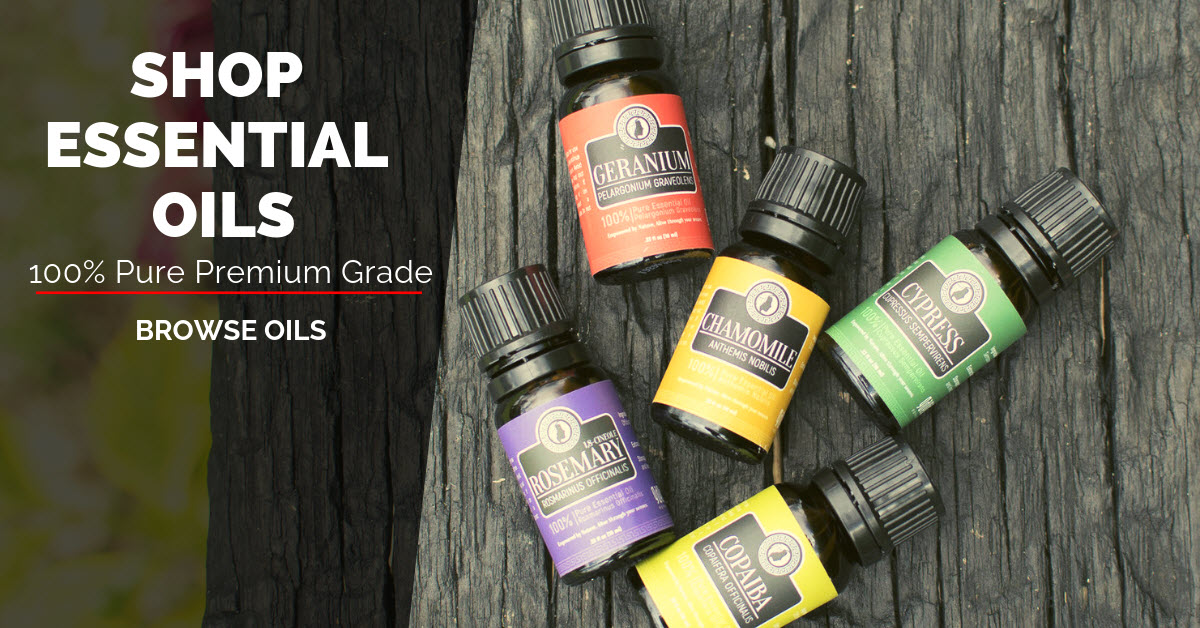In addition to the personal effects on life quality and well being, arthritic conditions result in social and health care expenditures. Osteoarthritis alone is a leading cause of disability undeveloped nations.
It is therefore personally and socially beneficial to explore essential oils in relation to providing care for rheumatic diseases. Essential oils offer comfort to a person with arthritis, contributing to one’s functional ability and feelings of hope.
How Essential Oils Helps Relieve Arthritis
Essential oils supports your body’s anti-inflammatory actions helping to reduce the degree of inflammation in a joint. This happens because of active ingredients that reduce oxidation.
Some oils are reported to be vital antioxidants because their action of scavenging free radicals. The oils’ chemical compounds destroy these compounds, eliminating their toxicity. This reduces cell damage including that associated with immune system dysfunction as presented here.
One gift of essential oils is that they love lipids, meaning they are attracted to fats! This quality assists you as they move into your body’s fat stores for gradual release. They can also pass through the blood-brain barrier. This is one explanation of how essential oils positively affect your thinking and mood.
Evening Primrose Carrier Oil: A Special Note
Evening primrose oil contains a compound that brings comfort because of its anti-inflammatory action. This omega-6 fatty acid known as gamma-linolenic acid (GLA) breaks down in the body. It is known to limit the RA symptoms of swelling and tenderness. It also alleviates rheumatism in general and reduces psoriasis symptoms for those with PsA. Consider how use of this carrier oil will contribute to your well being!
General Considerations
If you or a loved one lives with arthritis, your immune system likely has challenges. You may also be 65 years of age or older. Because of these circumstances consider using low concentrations of oils as you apply them for support and aid.
- Begin with a 1% concentration when a 2% is suggested in the use guidelines.
- Doing a patch test lets you know an oil is safe to use.
- If you decide to increase an oil’s concentration, do so gradually over several days to observe your overall response.
It is wise to converse with a health practitioner versed in essential oil use about your wish to use these for support and aid. This is because both medications and essential oils have active ingredients that can interact. Y
If your health practitioner is not knowledgeable about essential oil use, please refer yourself to one who is available for this portion of your care.
Best Essential Oils For Arthritis
1. Lavender Essential Oil (Lavandula angustifolia)
Lavender oil is associated with floral aromas and is soothing to your mood. Its anti-inflammatory properties are comforting if you have arthritis. These help to reduce the swelling that troubles people with inflamed joints. Ketone compounds are responsible for these actions that support your daily activities. They also offer analgesic effects, bringing you relief from pain. Another of lavender’s active compounds is camphor that also supports pain relief.
Lavender’s soothing effects offer a welcome reduction in the tension and anxiety that can accompany arthritis.
Try a warm soothing bath for your arthritic aches and pains. The warmth aids circulation, removing toxins and easing muscular tension.
Fill your tub with warm water—not so hot as to burn! Add a blend of 5 drops lavender oil and 1 tablespoon whole milk to your bath. Soak and luxuriate for 15 to 20 minutes. Add hot water to prevent becoming chilled as you relax.
2. Juniper Essential Oil (Juniperus communis)
Juniper essential oil removes toxins from the body by going after the free radicals that contribute to inflamed joints. Its anti-oxidant and flushing properties reduce toxins, such as those associated with gout.
It flushes retained fluids, relieving the swelling that stresses joints. An alcohol compound in the oil acts as a diuretic, supporting this release. Other compounds, sequisterpenes, contribute to its calming effects, making it a likely companion when arthritis causes you tension and anxiety.
It’s time for a juniper oil foot bath!
Draw a large container of warm water with plenty of room for both feet. Test water temperature with a thermometer or your fingers to assure it’s not too hot. Drop 1/4 cup epsom salt and 10 drops of juniper essential oil into the water. Consider beginning with half that amount if you are 65 years or older.
Soak your feet for at least 20 minutes. Consider having extra hot water nearby to replenish the water as it cools.
Note: Use with caution if you have any kind of kidney disorder.
3. Rosemary Essential Oil (Rosmarinus officinalis)
As it stimulates your circulation, rosemary serves your arthritic symptoms with anti-inflammatory and analgesic properties. The terpene compound pinene’s actions result in these properties.
Its antioxidant abilities occur because of flavonoids that aid in fat breakdown, reducing aging and damage to cells. This supports people who have general stiffness caused by rheumatism’s fluid retention and achy muscles.
Rosemary blends with lavender and peppermint essential oils, also used to relieve arthritic symptoms.
Begin with a low concentration blend of ½ cup of evening primrose oil and 12 drops each of rosemary and lavender essential oils blended evenly.
Apply with gentle rubbing strokes to an affected area such as a swollen knees or hands.
Note: Do not use if you have high blood pressure, a seizure disorder or issues with psychosis.
4. Eucalyptus Essential Oil (Eucalyptus globulus)
Eucalyptus clears your mind, enhancing focus. Added to that, it has anti-inflammatory benefits. These are pluses, offering soothing relief when your joints feel inflamed, swollen and painful.
Eucalyptol is a monoterpene compound of eucalyptus and is responsible for its anti-inflammatory action.
Eucalyptus essential oil’s anti-inflammatory properties make it a suitable choice for a compress.
Fill a basin with hot water—not so hot as to burn. Add 5 drops of eucalyptus essential oil and 2 tablespoons Epsom salt. Soak a medium size towel in the water and wring thoroughly.
Apply to the affected area; cover with plastic wrap and a dry towel to insulate. Keep in place for 15 to 20 minutes. Be sure to avoid becoming chilled as you rest during this treatment.
Note: It is best to avoid its use if you have high blood pressure or a seizure disorder.
5. Ginger Essential Oil (Zingiberaceae officinale)
In the body, ginger essential oil’s chemicals transform to become gingerols that aid in the reduction of joint inflammation.
An added therapeutic property for people with arthritis includes analgesic effects, reducing the pain of inflamed joints. Its warming helps to loosen the stiffness and aches of chronic rheumatic disorders. These effects are brought about by the actions of several terpene compounds.
A warm ginger compress soothes joint inflammation. Prepare it by: Filling a bowl with hot water and adding 2 tablespoons Epsom salt and 4 drops ginger oil. Soak a hand towel in the water and wring thoroughly.
Place on the affected area and cover with a dry towel for insulation. If you have sensitive skin, please be aware of the potential for irritation.
6. Helichrysum (Helichrysum italicum)
Helichrysum’s properties include its being anti-inflammatory and an immune system booster, with the added gift of having a calming effect. These benefits, along with being a pain-relieving analgesic, offer you reduction in arthritic swelling and pain.
Helichrysum oil contains the terpene compound pinene, an anti-inflammatory agent that is also found in rosemary.
There have been reports that some people who have applied Helichrysum externally have had the benefit of quick pain relief! With that, let’s go through the steps for using the oil on a sore, swollen joint:
This is for a low concentration mixture. Place 3 drops of Helichrysum essential oil in 1 tablespoon of carrier oil. Begin with a patch test, by rubbing a small amount of this mixture on the inside of your forearm. Wait for 20 minutes. If you do not experience any redness or itching at the site, it’s fine to proceed!
Gently rub the oil mixture in the area of the joint and surrounding tissues. This action will help to absorb the oil.
Note: Should be avoided by people taking blood thinning medications.
How To Use Essential Oils To Alleviate Arthritic Ailments
Fortunately, essential oils can be used in various ways, based on your particular condition and the result you wish to achieve.
Aromatic Bathing For Arthritic Aches
The bath is an excellent place to soothe your whole being.
- a few drops of your selected oil
- a dispersant such as milk, honey or Epsom salt
Blend the oil and dispersant and add this to running hot water while drawing the bath to fill the room with the aromas and calming warmth.
Be careful of any slippery surfaces after bathing.
Massage Oil
Use of a massage oil delivers the essential oil quickly to an area of inflammation.
- 24 drops of oil
- 60 ml (2 ounces) of carrier oil
The amounts above is for a 2% concentration for general use. Note: 12 drops of oil in the same amount (60 ml / 2 ounces) of carrier oil is a low concentration that is preferred for seniors and those with immune system concerns.
Safety first! That means preparing the massage oil and doing a patch test before you really go for it. Place on your skin for 15 to 20 minutes; if red or itchy, do not use this oil.
Slowly and gently massage the oil preparation into the affected area. This action stimulates circulation, encouraging penetration of the oil into your tissues.
Delay washing the area for a bit to allow full benefit of the treatment.
Hot Compress To Ease Pain And Chilliness
One benefit of a hot compress is its ability to increase circulation to an area.
- 2 tablespoons of dispersant (such as milk, honey or Epsom salt)
- 5 drops of essential oil.
Prepare a basin or large bowl of hot (not burning!) water. Add the blend to the water. Soak a towel or piece of flannel in the water and wring out.
Place on the affected area and insulate on the outside with plastic wrap and a dry towel or a water bottle. Keep in place for at least 20 minutes.
Monitor how you feel so that you stay warm and cozy.
To Summarize
- Arthritis in its many forms afflicts millions of people around the world. They live with pain and loss of function that may or may not be relieved by medications. Essential oils add comfort and support, especially because of their anti-inflammatory and analgesic properties.
- Essential oils are a gift if you or a loved one lives with arthritis. The limitations you experience can be relieved by using these oils in blends that you create and have at your fingertips.
- Essential oils lift your spirits and warm you to the core.
- Consult a medical practitioner that is knowledgeable about essential oils before use, as essential oils have active ingredients that can interact with medication.
Read more:


